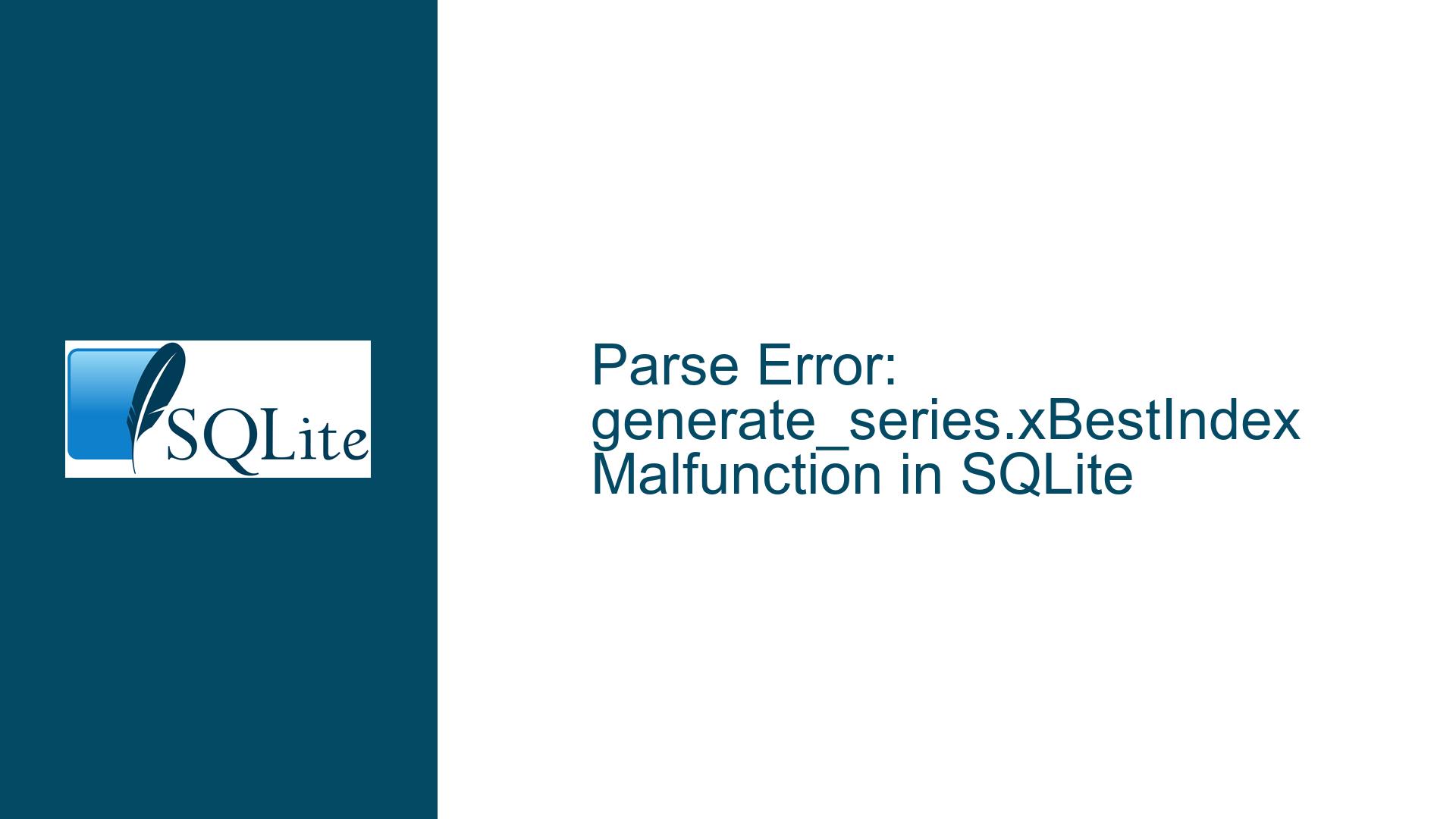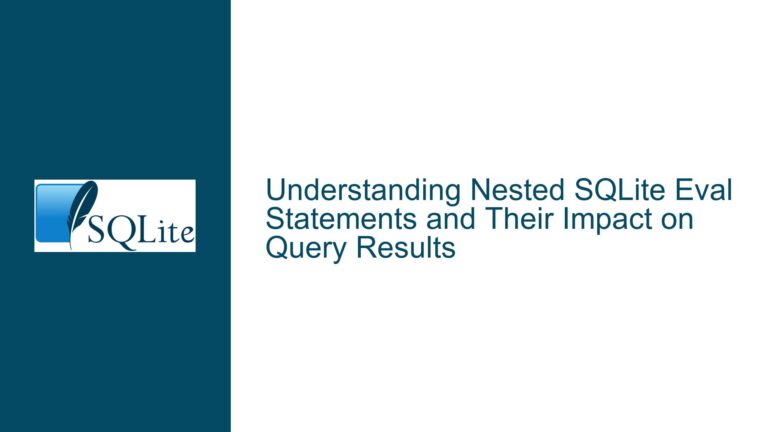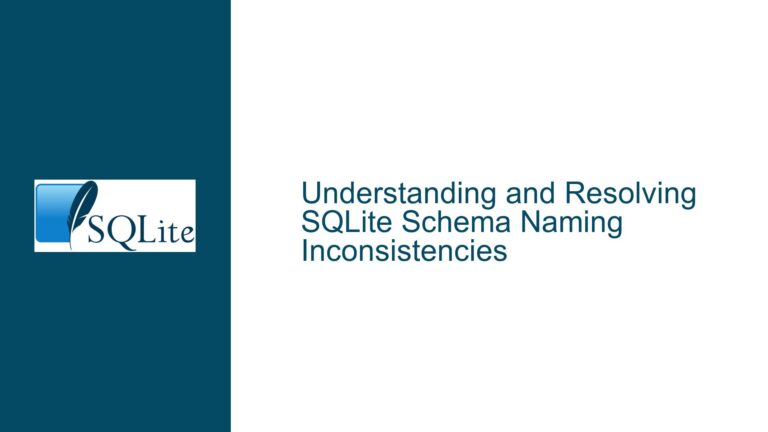Parse Error: generate_series.xBestIndex Malfunction in SQLite
Understanding the generate_series.xBestIndex Malfunction
The generate_series.xBestIndex malfunction is a specific issue that arises when executing SQL queries involving the generate_series table-valued function in SQLite. This function is commonly used to generate a sequence of integers within a specified range, which can then be used in various SQL operations such as filtering, joining, or subquerying. The malfunction occurs when the SQLite query planner attempts to optimize the query execution plan using the xBestIndex method, which is part of the virtual table interface in SQLite. The xBestIndex method is responsible for determining the most efficient way to access and filter data from a virtual table, such as generate_series. When this method fails or behaves unexpectedly, it results in a parse error, preventing the query from executing successfully.
The issue manifests in specific scenarios where the generate_series function is used in conjunction with certain SQL constructs, particularly those involving subqueries or complex filtering conditions. For example, queries that use the IN operator with a subquery or the VALUES clause tend to trigger this malfunction. The error message "Parse error: generate_series.xBestIndex malfunction" indicates that the query planner encountered an issue while trying to optimize the query, leading to an inability to parse and execute the query as intended.
Root Causes of the generate_series.xBestIndex Malfunction
The generate_series.xBestIndex malfunction can be attributed to several underlying causes, primarily related to the interaction between the generate_series function and SQLite’s query optimization mechanisms. One of the main causes is the improper handling of subqueries within the IN operator. When the IN operator is used with a subquery, SQLite’s query planner attempts to optimize the query by evaluating the subquery and determining the most efficient way to access the data. However, in the case of the generate_series function, this optimization process can fail, leading to the malfunction.
Another cause of the malfunction is the interaction between the generate_series function and the VALUES clause. The VALUES clause is used to create a temporary table with a set of specified values, which can then be used in various SQL operations. When the generate_series function is used in conjunction with the VALUES clause, the query planner may encounter difficulties in optimizing the query, resulting in the malfunction.
Additionally, the malfunction can be triggered by the use of complex filtering conditions involving multiple OR operators. For example, queries that use the OR operator to filter the results of the generate_series function based on multiple conditions may cause the query planner to fail in optimizing the query, leading to the malfunction.
Resolving the generate_series.xBestIndex Malfunction
To resolve the generate_series.xBestIndex malfunction, several troubleshooting steps and solutions can be employed. The first step is to ensure that the SQLite version being used is up to date. As indicated in the discussion, the issue was fixed in a specific version of SQLite (3.48.0). Therefore, updating to the latest version of SQLite that includes the fix is the most straightforward solution.
If updating SQLite is not feasible, an alternative approach is to rewrite the query to avoid the constructs that trigger the malfunction. For example, instead of using the IN operator with a subquery, the query can be rewritten to use a JOIN or a WITH clause to achieve the same result. Similarly, queries that use the VALUES clause can be rewritten to use a temporary table or a common table expression (CTE) to avoid triggering the malfunction.
Another solution is to use a different approach to generate the sequence of integers. Instead of using the generate_series function, the sequence can be generated using a recursive CTE or a loop in a procedural language such as PL/SQL. This approach avoids the use of the generate_series function altogether, thereby circumventing the malfunction.
In cases where the malfunction is triggered by complex filtering conditions involving multiple OR operators, the query can be rewritten to use a combination of AND and OR operators in a way that simplifies the filtering logic. This can help the query planner to optimize the query more effectively, avoiding the malfunction.
In conclusion, the generate_series.xBestIndex malfunction is a specific issue that arises when using the generate_series function in SQLite with certain SQL constructs. The malfunction can be attributed to the improper handling of subqueries, the VALUES clause, and complex filtering conditions by the query planner. To resolve the issue, it is recommended to update to the latest version of SQLite, rewrite the query to avoid the problematic constructs, or use alternative approaches to generate the sequence of integers. By following these troubleshooting steps and solutions, the malfunction can be effectively resolved, allowing the query to execute successfully.






